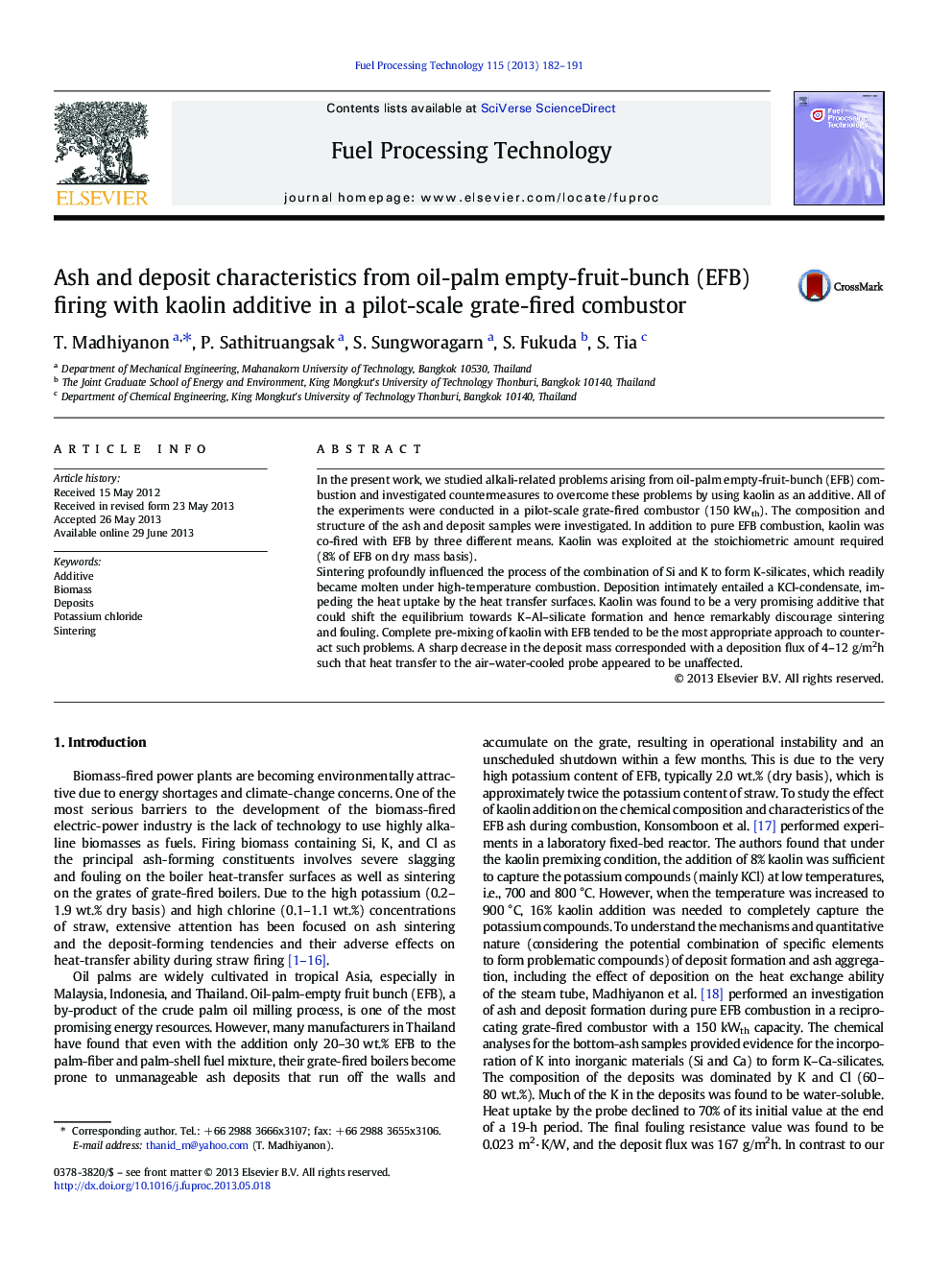| Article ID | Journal | Published Year | Pages | File Type |
|---|---|---|---|---|
| 6657453 | Fuel Processing Technology | 2013 | 10 Pages |
Abstract
Sintering profoundly influenced the process of the combination of Si and K to form K-silicates, which readily became molten under high-temperature combustion. Deposition intimately entailed a KCl-condensate, impeding the heat uptake by the heat transfer surfaces. Kaolin was found to be a very promising additive that could shift the equilibrium towards K-Al-silicate formation and hence remarkably discourage sintering and fouling. Complete pre-mixing of kaolin with EFB tended to be the most appropriate approach to counteract such problems. A sharp decrease in the deposit mass corresponded with a deposition flux of 4-12Â g/m2h such that heat transfer to the air-water-cooled probe appeared to be unaffected.
Related Topics
Physical Sciences and Engineering
Chemical Engineering
Chemical Engineering (General)
Authors
T. Madhiyanon, P. Sathitruangsak, S. Sungworagarn, S. Fukuda, S. Tia,
